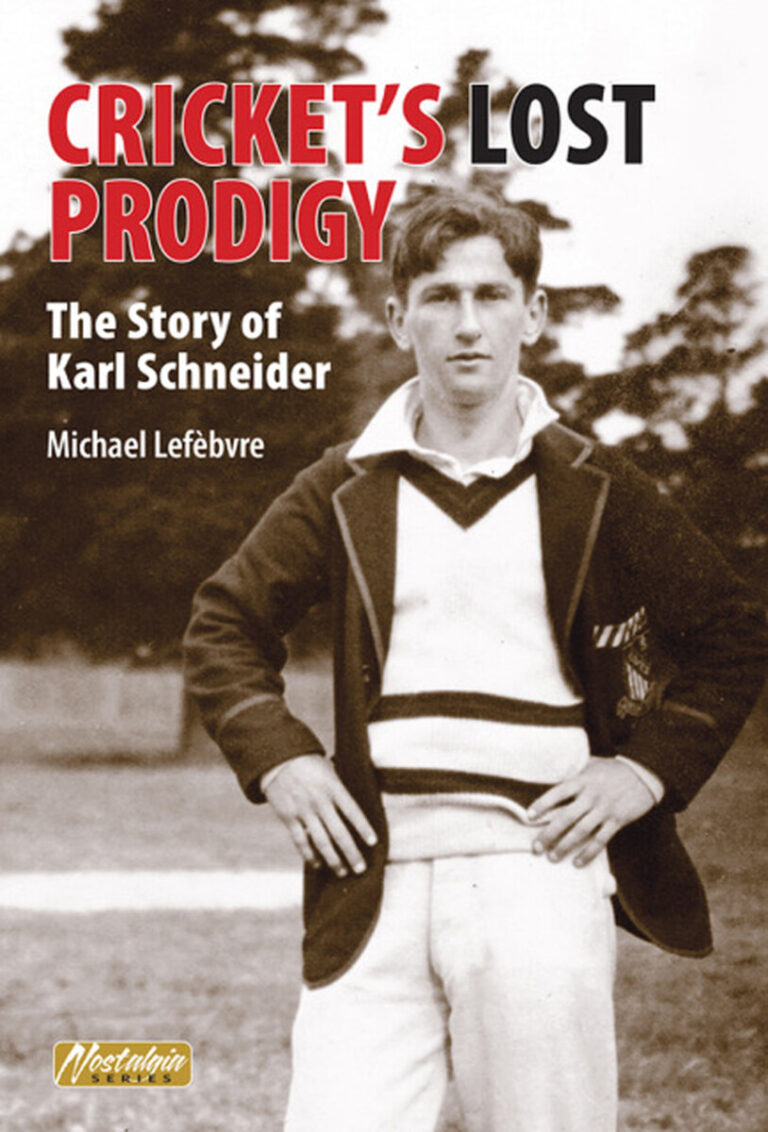Subtotal:
$9.35 (incl. tax)

Never before, or since, has 22 yards of a cricket pitch ever been so absurdly perfect.
So minimal was the movement that even Ken Farnes and Hedley Verity, two of world cricket’s most outstanding bowlers, could hardly make an impression.
Twelve new balls were used as cricket’s most epic Test match meandered 10 days from one week into another… without result.
 Played in a backdrop of an impending World War — Hitler was just months away from invading Poland — Durban’s 43-hour marathon was decided eventually by a steamship’s timetable.
Played in a backdrop of an impending World War — Hitler was just months away from invading Poland — Durban’s 43-hour marathon was decided eventually by a steamship’s timetable.
Neville Cardus dubbed it ‘an absurdity’. Jack Hobbs called it ‘a game killer’. Yet others, like South Africa’s most celebrated writer Louis Duffus reckoned it was ‘fantastic’ and ‘the father of all Test cricket freaks’.
Set 696 to win, England was agonisingly close just 42 runs short at 5-654 when rain interfered and travel itineraries re-consulted.
Thirty-six bottles of the best champagne had been iced for the victors and were eventually to be hurriedly shared between the two exhausted XIs as the English began the two day railway journey to Cape Town to rendezvous with the Athlone Castle taking them home.
The longest match of all was over. Cricket, like the rest of the world, was edging towards darkness.
South Africa’s captain Alan Melville initially claimed the match, saying England was forfeiting ‘by leaving early’.
While South African administrators were grappling over this one, several of the Englishmen including new world record-holder Len Hutton rifled some of the match stumps, realising they could be significant momentos.
Rules of the time permitted the rolling of the wicket after rain and at first light most mornings Kingsmead curator Vic Robins was able to erase all the imperfections and effectively create a new wicket.
Even after three day’s play, the rich soil from the nearby Umgeni River showed hardly any sign of wear and tear.
Author John Lazenby says Dudley Nourse inspected the wicket on the 11th morning and found it still rock-hard and impervious.
South Africa’s first innings meandered 13 hours. It was a go-slow on an over-prepared wicket which highlighted the futility of deciding matches in a rubber being played without limits.
The colorful RC Robertson-Glasgow said some of the batsmen were so marooned in a defensive psyche ‘they nearly slept on the pitch’.
The wife of South African allrounder Eric Dalton grumbled that he kept waking her most nights appealing for wickets in his sleep.
More runs (1981) were made and more balls (5447) bowled than in any other Test.
It’s a fascinating story, beautifully told. – KP
Never miss a sale or new release. Subscribe to cricketbooks.com.au

Cricketbooks.com.au is Australia’s number 1 website and online store for cricket publications and memorabilia. Coordinated by Ken Piesse – Author, Commentator, Public Speaker, and Publisher – cricket books has Australia’s largest range of both new releases and classic collectibles, cigarette cards, rare photographs, and much more.
PO Box 868
Mount Eliza, Victoria 3930, Australia
Mob: 0419 549 458
Tel: (03) 9787-8023
Email: kenpiesse@ozemail.com.au